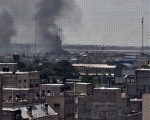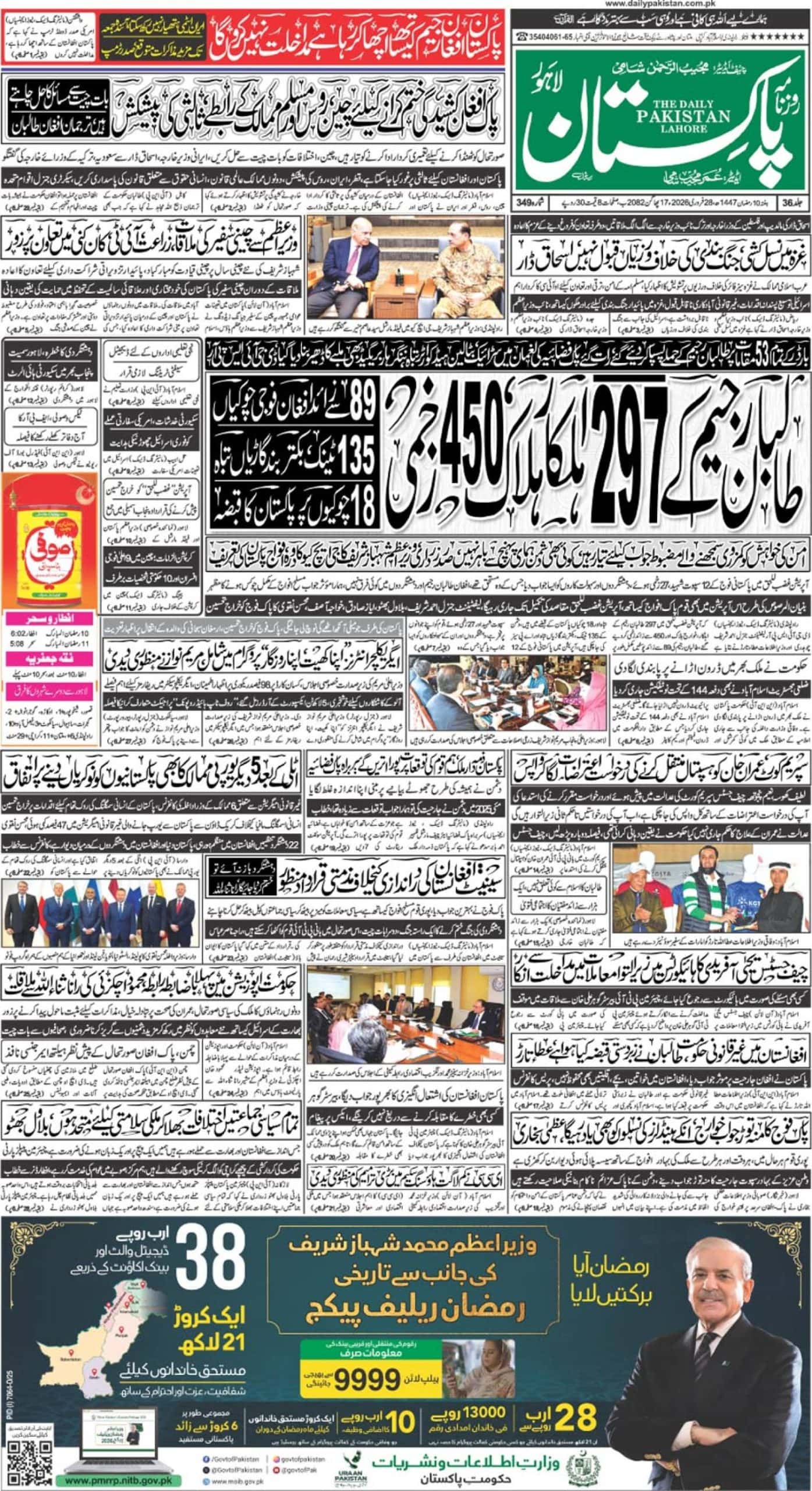A trend is fast emerging among people whereby they get information directly on their smartphones much before the private television channels break news stories in Pakistan.
Technological advancements and information-sharing applications on social media have taken over mobile handsets, through which now people prefer to get the information they need.
The mainstream media can no longer decide to withhold information under pressure from any powerful stakeholder. If any stakeholder tries to do so, it is not long before the withheld information is leaked on social media, leaving the mainstream media generally with no option but to follow the lead from social networking websites and applications.
During the past couple of weeks, whosoever I met has not failed to discuss the persecution of Muslims in Burma, something not reflected in the country’s dozens of private news channels.
Obviously social media is the source of the most of the information regarding how the Buddhist army burnt villages after villages, raped women and brutally killed people from all age groups in a manner not witnessed since World War II.
Content on Social Media
Entertainment, politics, militancy and religion dominate on social media. Entertainment is the most popular browsing activity on video-hosting websites, while religion (Islam) has taken over the smartphone applications for instant messaging services.
Social media is a double-edged weapon. The political parties and military establishment in Pakistan have been allegedly using it to disseminate disinformation and propaganda against each other. So have the religious and militants outfits, which have inundated social media with their propaganda on sectarian lines on issues linked with their sects and cults.
They propagate Islam with their own interpretation of regional and international issues linked with the persecution of Muslims the world over, particularly in Burma in recent weeks.
Social networking websites and applications have turned out to be the fastest sources of communication which are gaining a strong foothold among students, and the educated and semi-educated segments of the population.
The information on persecuted Muslims in Burma is just the tip of the iceberg of how social media in Pakistan has played a pivotal role in creating awareness among people.
People, it seems, are getting much of the information about the persecution of their brothers and sisters in faith in Burma from social media, which carries graphic details on how already marginalized Muslims in its Rakhine province were systematically brutalized by the Buddhist army.
The gloom and anger among Pakistani people over the persecution of Muslims minority is visible. Almost half of 1.1 millions have been forced to run away from Rakhine province to Cox’s Bazar, a Bangladeshi city near the Burmese border.
Two to eight minutes video clips are significantly becoming popular on social media applications and websites, showing the plight of Burmese Muslims. And so have the graphic pictures on Buddhist terror unleashed on unarmed Rohingya Muslims.
Short video clips on international media explaining broad details about the scale of brutalities have found their way onto the social media over which people shared them on a massive scale, particularly over instant messaging applications such as WhatsApp.
Also included are brief text messages in image format with the historical context of brutalities suffered by Rohingya Muslims at the hands of the Burmese army.
Impact of social media on radicalization of society
The army Chief General Qamar Javed Bajwa on September 6 vowed that the State would not allow militants to undertake Jehad on their own as it is the sole prerogative of the government to declare Jehad against the enemy.
This has followed an interesting development. Dr Muhammad Ashraf Jalali, a leader of Brailvi school of thought in his address to his supporters, brandished a sword in his hand and declared Jehad against the Buddhist army for resorting to genocide of Muslims minority.
In a video clip being shared on social media, he sounded determined to gather at least 100,000 volunteers which he said his organization would dispatch to Burma to avenge the killing of their fellow Muslim brothers. In the twilight of his speech, he, however, said that names and details of volunteers would be sent to the army chief who would have the final say on whether or not to send them to Burma to wage Jehad.
The hanging of Mumtaz Qadri, the assassin of Salman Taseer, the former governor of Punjab who was killed in 2011, has added fuel to fire to radicalize the society. The Brailvi sect, which historically has largely been peaceful, is now becoming radicalized.
Obviously Pakistan Army would never send any batch of Jehadies at the request of a cleric to Burma given the hostile geo-strategic landscape in South Asia. However, there is a real possibility that volunteers from Brailvi schools of thought may end up in the hands of militant groups which rather believe in targeting state institutions for failing to militarily respond to the persecution of Muslims.
Pakistan Taliban Movement has already announced that it will engage its fighters for Jehad in Burma at a time when graphic pictures and videos showing the atrocities of the Burmese army against Muslim minority population are in circulation at a large scale on the social media.
Over the course of decades, and more particularly after 9/11, the militant groups have disseminated a strong propaganda through various means, the latest of which uses social media to state that Muslims rulers have become tools in the hands of powerful capitals in the West to further the persecution of Muslims in occupied Palestine, Syria, Iraq, Yemen, Libya, Afghanistan, Egypt, Burma and India and elsewhere in the world. Hence they believe that seeking sanction for Jehad from the State is no longer required.
Already a large numbers of youngsters from the majority Sunni sect and minority Shia community travelled to Iraq and Syria to support Daesh and Iranian-funded Shia militant groups on sectarian lines and most of them were attracted and indoctrinated through social media.
No Viable Mechanism to Control Social Media
Pakistan Telecommunication Authority and security forces have limited options to monitor social media given the technical limitations on worldwide websites. Social networks like Facebook, Twitter and video hosting websites can be monitored to some an extent. However, it is extremely difficult for official cyber warriors to keep an eye on individuals who anonymously exchange video, audio, and text messages through WhatApp, Signal, and other such encrypted and unencrypted messaging applications.
Therefore, the government must make its stance on persecuted Muslims loud and clear in a manner that people see its leaders representing their sentiments. A meaningfully explained official policy is the best available tool to discourage private Jehad of individuals who may end up in the hands of militant groups which exploit their religious ideology for their strategic gains.
Pakistan’s response on Burmese Muslims
In an official statement few weeks ago, Ministry of Foreign Affairs said that “In line with its consistent position on protecting the rights of Muslim minorities the worldwide, Pakistan will work with the international community in particular with the OIC to express solidarity with the Rohingya Muslims and to work towards safeguarding their rights.”
Ambassador Farukh Amil, Pakistan’s Permanent Representative to the United Nations, also raised their plight at the 36th Session of the United Nations Human Rights Council (UNHRC) in Geneva. This was indeed an insufficient response, which was too late and came at a time when the public resentment was on the rise.
It is high time Pakistan goes beyond usual lip service and undertakes concrete steps to help the persecuted Muslims. This would help to improve the image of the state, particularly of its army which has been calling the shots on all key defense and foreign policy-related issues.
Pakistan’s Challenges
The bigger trouble for Pakistan is that its key ally China is one of the few partners of Burma’s military which continues to call the shots despite the restoration of democracy. Under de facto Burmese leader Aung San Suu Kyi’s civilian government, Beijing has undertaken giant trade, energy and infrastructure projects in Rakhine province where according to United Nations rights chief Zeid Ra’ad Al Hussein, the violence seemed to be a “textbook example of ethnic cleansing”.
Regardless of what Chinese’s strategic and economic interests are in Burma, Islamabad must take an independent position in a manner that does not offend Beijing.
Another bigger challenge is the propaganda campaign which India is spearheading against Pakistan’s ISI for backing militant groups in Burma. New Delhi shared its intelligence reports based on telephone calls interceptions with Dhaka and Rangoon, suggesting that ISI was encouraging militant attacks on police stations and army installations in Burma.
These reports are nothing more than intelligence crap which is part of India’s long-drawn policy to virtually implicate Pakistan in every mess in the region and elsewhere in the world.
Pakistan’s Options on Burmese Muslims
At the center of public discontentment in Pakistan on this issue is the lack of an effective response from the government. To begin with, in reaction to brutalities against the Burmese Muslims, Pakistan should have withdrawn the Presidential award which Islamabad had awarded to Myanmar’s de facto leader Aung San Suu Kyi in January 2012 in acknowledgement of her so-called services for the cause of democracy.
At least a nuclear armed Muslim State should have taken a cue from a tiny Muslim country Maldives which suspended its trade and diplomatic ties with Burma as a reaction to the massacre of Muslims. That is not enough.
Last year Myanmar requested Pakistan to supply it 16 JF-Thunder- fighter jets against 560 million dollars. Islamabad now must revoke the agreement as a mark of protest over the massacre of marginalized Muslims.
The country’s military establishment has been too obsessed with a pragmatic policy on geo-strategic issues after 9/11. It is high time now for the military to address public concerns on this issue.
The army should ignore the arguments being floated by many that if Pakistan revokes the deal, some other country would sell fighter jets of equivalent technical standards to Burma. The benefits of revoking the deal can be outweighed by a policy posture to placate public sentiments which would help to deradicalize the society.
Fortunately Bangladesh has reversed its policy on Muslims expelled from Burma and is now showing signs of compassion. “We have the ability to feed 160 million people of Bangladesh and we have enough food security to feed the 700,000 (Burmese) refugees,” said Sheikh Hasina Wajid Bangladesh Prime Minister. Islamabad also needs to share the burden and charity begins at home.
Officially, there are as many as 55,000 Burmese Muslims with Rohingya ethnic background who have been living in Arkanabad near Karachi. However, unofficially there are over 300,000 refugees who first arrived in Karachi after the military takeover in Burma in 1962. Included in them are also those who migrated to Pakistan after Bangladesh came into being as a result of civil war in former East Pakistan in 1971.
Like in Burma, Rohingya Muslims are stateless in Pakistan and their children cannot enroll themselves in public schools.
Pakistan must coordinate efforts with the OIC to ensure the safe return of Burmese Muslims to their country and, if it doesn’t work, all Muslim states should put their heads together to burden themselves with a fair share of displaced Rohingya population in their countries particularly in North Africa and Middle Eastern states many of which have large geographies and less population. Until then, Pakistan must provide all basic services to the migrated Muslims in the country.
Why Their Repatriation is Difficult
Burma officially excluded its Muslims minority in 1974 and since then a systematic campaign has been launched against them as a result of which they were denied land, proper food supplies, shelter and security.
Their mosques were destroyed, their lands were taken over, and the rape of their women and torture have not been unusual incidents in Burma over the course of decades. All this was designed to terrorize them into fleeing Burma.
In 1982, they were legally banned from becoming Burmese citizens. Rangoon deprived them of employment opportunities in government departments and they were subjugated into slavery to build up infrastructure and undertake development work. They have even been barred from leaving their homes for the neighbouring villages until they seek permission from the authorities.
This led some persecuted Muslims to resort to armed resistance in 1986 which did not work. In 2012, a few Rohingya Muslims were blamed raping Buddhist women which triggered their genocide and displacement.
In August this year, attacks on police stations and army installations led to a disproportionate crackdown on their villages which have triggered their exodus at a large scale. This time around, the Burmese army has laid down landmines in the border region in an attempt to ensure that they do not return, therefore forcing the Burmese government to repatriate them and grant them citizenship, is something easier said than done.














